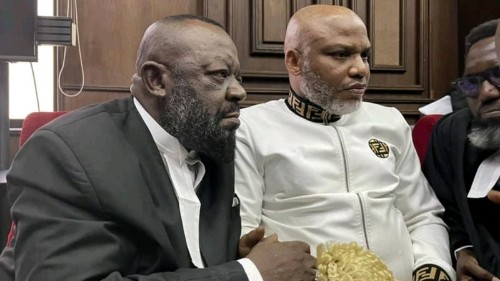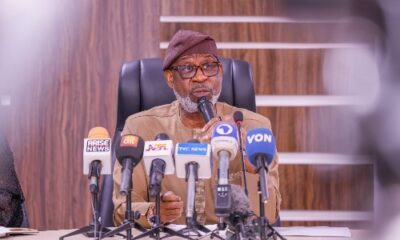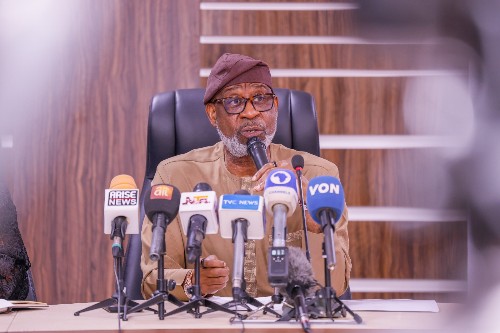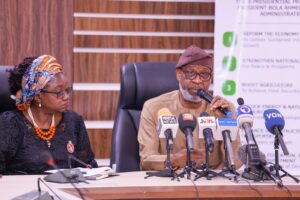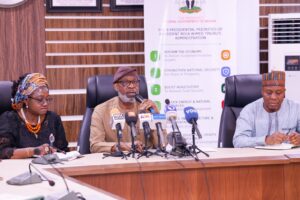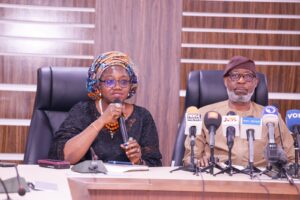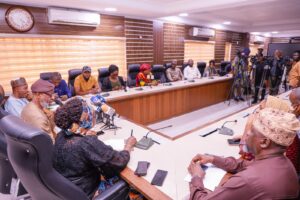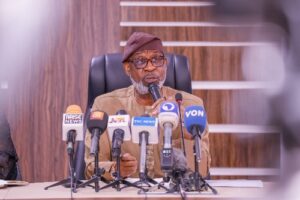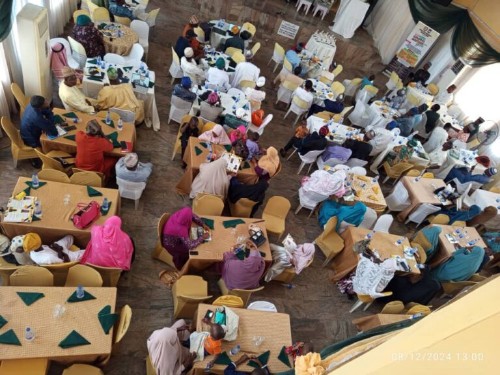The leader of the proscribed Indigenous People of Biafra (IPOB), Nnamdi Kanu, had another bail application denied by a federal high court in Abuja.
The presiding judge, Binta Nyako, also rejected Kanu’s request to be moved from the Department of States Services (DSS) to a correctional facility.
Additionally, the defendant’s plea to be put under house arrest was denied.
The federal government has proposed a seven-count indictment against Kanu that borders on treasonable felony.
Kanu is currently facing trial on this charge.
Remember how the court granted Kanu bail in 2017 despite the federal government’s treasonable felony accusations against him?
However, the court revoked Kanu’s bail and issued a bench warrant for his arrest after he failed to present himself as required.
The IPOB leader was rearrested in Kenya in 2021 and extradited to Nigeria, after being on the run for a few years.
In April 2022, Nyako struck out eight of the 15 counts in the charge.
The remaining seven counts were also quashed by the court of appeal on October 13, 2022, with the judge ordering Kanu’s release.
However, on October 28, 2022, the court of appeal granted a stay of execution on its verdict discharging Kanu, after the federal government filed an appeal at the supreme court.
On December 15, 2023, a five-member panel of the apex court reversed the verdict of the appeal court and ordered Kanu to resume his trial before the federal high court.
In the fresh bail application, Kanu asked the court to restore his bail which was revoked in 2017.
In the alternative, he asked to be removed from the custody of the DSS and placed under house arrest, or to be remanded in prison.
The defendant said contrary to the federal government’s claim, he did not jump bail or breach any of the conditions of the 2017 bail, but had to flee the country when soldiers allegedly invaded his house in Abia.
He told the court that he would have been killed if he had not escaped the way he did, and accused the federal government of misleading the court in getting the bail revoked.
He also asked the court to set aside the arrest warrant issued against him by the court while he was out of the country.
He also alleged that he does not get proper medical services in DSS custody and he is unable to properly prepare for his defence due to restricted access to his lawyers.
Delivering the ruling, Nyako refused the application of the defendant.
She noted that those who stood surety for the defendant in 2017 had approached the court and applied to be discharged after Kanu escaped from the country.
She held that the sureties, in their applications, claimed that they were not aware of the whereabouts of the defendant, a scenario that forced the court to order the forfeiture of their N100 million bail bonds.
According to the trial court, the issue is currently pending before the court of appeal.
The court held that having refused Kanu’s request for bail on several occasions, the only option available to him was to take the matter before the appellate court.
However, the judge ordered the DSS to always grant Kanu access to his lawyers not exceeding five persons on every visiting day.
It ordered that Kanu must be given “a clean place” to consult with his lawyers at the DSS detention facility, adding that he must be granted access to a doctor of his choice.
Nyako warned that any attempt by Kanu’s legal team to file similar applications before the court would be regarded as a gross abuse of the judicial process.
“You have an option of appeal, please exercise your right of appeal,” the trial judge added.

 BIG STORY4 days ago
BIG STORY4 days ago
 BIG STORY2 days ago
BIG STORY2 days ago
 BIG STORY3 days ago
BIG STORY3 days ago
 BIG STORY4 days ago
BIG STORY4 days ago
 BIG STORY4 days ago
BIG STORY4 days ago
 BIG STORY5 days ago
BIG STORY5 days ago
 BIG STORY3 days ago
BIG STORY3 days ago
 BIG STORY3 days ago
BIG STORY3 days ago




